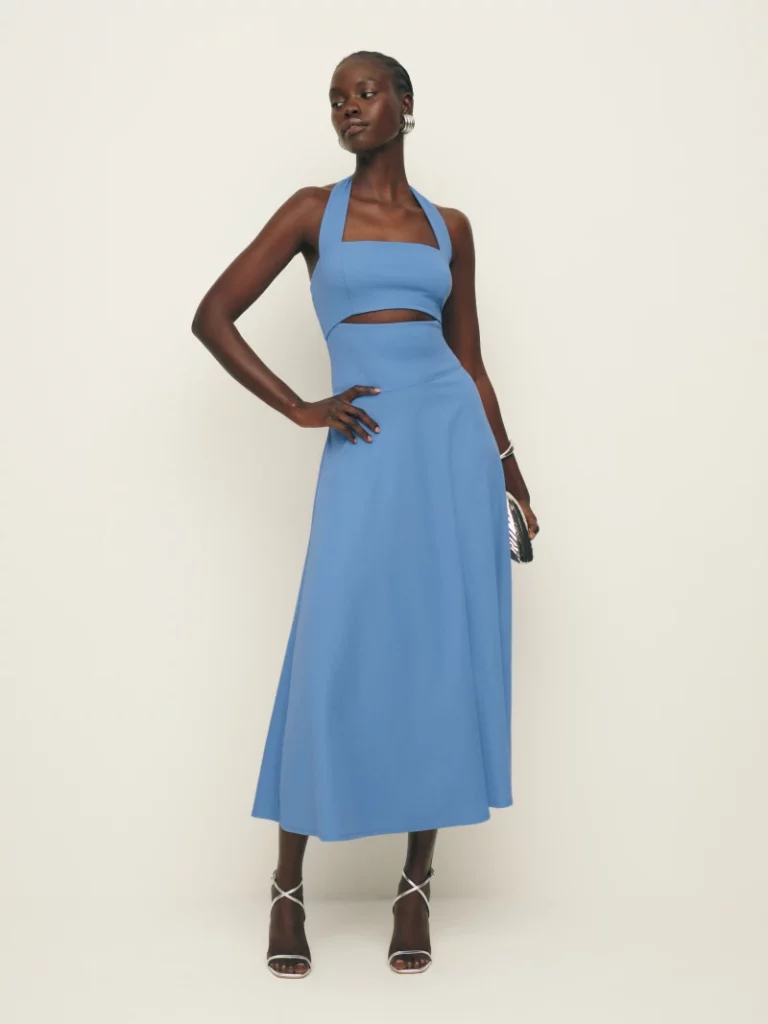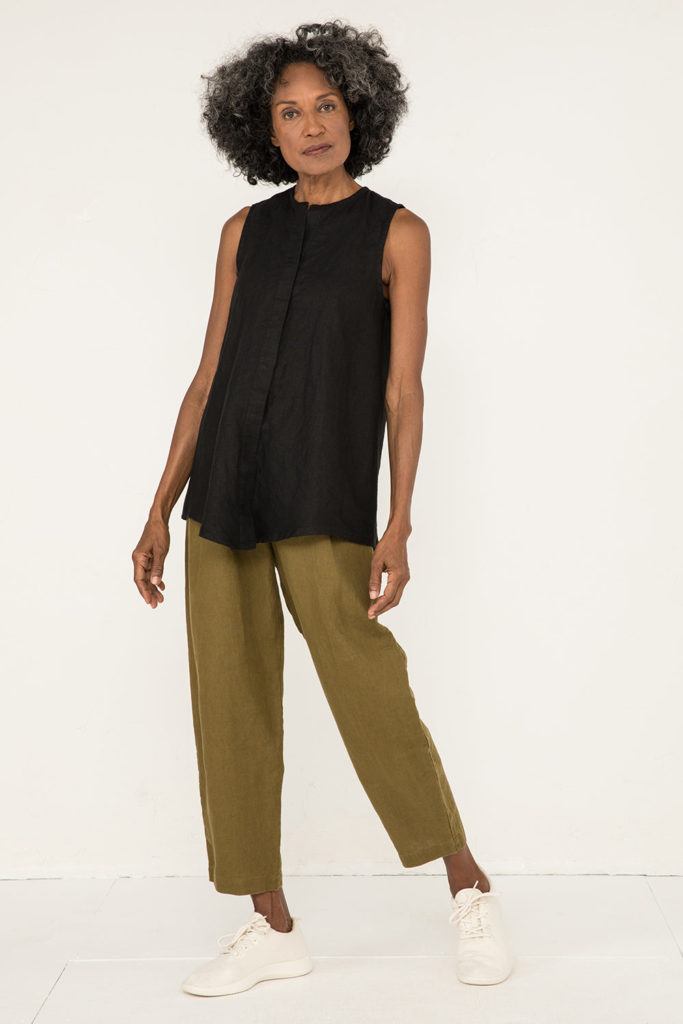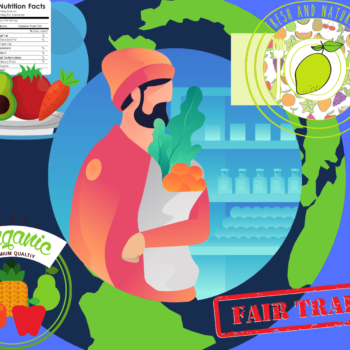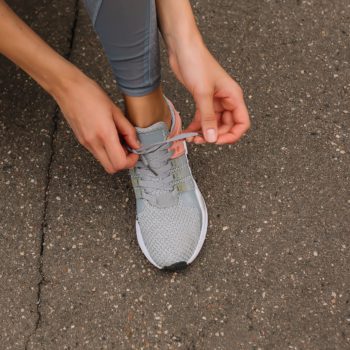|
|
According to the Gitnux Market Data Report for 2024, the worldwide women’s apparel industry is experiencing significant growth, with forecasts indicating it will achieve a remarkable value of $829.6 billion by the year 2025. As of 2021, the United States alone contributed approximately $180 billion to this flourishing sector. This segment represents a substantial 34.3% share of the entire global apparel market, underscoring the influential role of women’s clothing in the fashion industry.
Regarding sales channels, online platforms have become increasingly pivotal, accounting for 32.3% of the total revenue generated by women’s apparel within the same period. This emphasizes the growing trend towards digital shopping experiences among consumers. Furthermore, the average expenditure by women in the US on clothing items is estimated at about $65 monthly, highlighting the steady consumer demand in this segment.
While the economic growth of the global women’s apparel market represents a boon for the industry, it casts a shadow on the environmental front. Rapid expansion and consumer appetite for new clothing contribute to vast resource consumption, including water and energy, and generate significant amounts of waste due to production processes and the fast fashion cycle.
Due to this, many conscious consumers seek alternatives that align with their values. In response to this demand, a rising tide of sustainable brands is reshaping the narrative–many of whom are American-made clothing brands. Beyond representing fashion, these brands lead the change, blending quality craftsmanship with a deep commitment to ethical practices and environmental care. They foster transparency, sustainability, and accountability in an industry that profoundly impacts our planet and its inhabitants.
Join us as we explore 10 sustainable women’s clothing brands crafted in the USA, each with its unique approach to reshaping how we think about our clothes.
Key Takeaways
- Fast fashion floods the market with budget-friendly clothing, predominantly targeting young female consumers.
- The United States alone produces a staggering amount of textile waste that ends up either in landfills or incinerated.
- Sustainable fashion is more than just style; it’s a commitment to ethical practices and environmental responsibility.
- A growing number of American-made clothing brands for women prioritize transparency, fair labor, and eco-friendly materials.
- Purchasing clothes from any of the US-made sustainable women’s clothing brands in this post supports local economies, reduces carbon footprints, and promotes a circular economy.
- In addition to supporting sustainable American-made clothing brands, extending the lifespan of your garments is a crucial aspect of practicing sustainability. You can do this through proper storage practices, using gentle washing techniques, and embracing clothing repair.
US Clothing Consumption and Its Impact

Before diving into our carefully curated list of brand recommendations, it’s important to examine the concept of fast fashion first.
Fast fashion floods the market with budget-friendly clothing, predominantly targeting young female consumers. Beyond the convenience, the industry’s allure lies in its ability to swiftly churn new styles at affordable rates, that buying on impulse becomes too tempting, and discarding them afterward feels inconsequential.
Yet, the fast fashion industry’s environmental footprint is staggering. According to BBC, a shocking 85% of all discarded textiles in the United States in 2017 ended up either in landfills or were incinerated. That’s 13 million tons of textile waste or approximately 37kg (about 81 pounds) of clothing thrown by each American.
On a global scale, the situation is equally dire, with an estimated 92 million tons of textile waste generated each year. This equates to a garbage truck’s worth of clothes being dumped into landfill sites every single second.
Textile Waste
To manage the surplus of clothing, many Americans turn to donating their used garments to charities or selling them to thrift shops. This might seem like a practical solution for addressing clothing overflow. Still, the reality is that the domestic demand for these used clothes falls far short of the supply, even if they were distributed for free. As a result, charities often pass on these textiles to recycling organizations.
However, not all clothes end up being recycled in the traditional sense. Many of these textiles embark on a new journey overseas, finding a second life in international markets as used clothing.
In the heart of Ghana, the Kamanto market becomes the final destination for approximately 15 million items of used clothing from Western countries every single week, a staggering figure when considering Ghana’s total population is just around 30 million, according to CBS News. This influx highlights a significant imbalance in global clothing distribution and the overwhelming scale of textile waste exported from the West.
Upon arrival at Kamanto, one of the largest second-hand clothing markets, these textiles are unloaded in bales into an extensive network of over 5,000 stalls spread across seven acres. Market traders, facing uncertain prospects, purchase these bales for amounts ranging from 25 to 500 dollars each without prior knowledge of their contents. They hope to breathe new life into the garments through cleaning, tailoring, and re-dyeing processes.
Despite the diligent upcycling efforts by traders at Kamanto market to infuse these clothes with a second life, they barely scratch the surface of mitigating the excessive onslaught of clothing produced by America’s fast fashion consumption. It’s estimated that a staggering 40 percent of all clothing shipped to Ghana is doomed for landfills, underscoring the inefficacy of current systems to cope with the waste generated. The issue is exacerbated as unsold garments find their way to beaches during rainfalls, forming extensive, knotted entanglements known colloquially as “tentacles” in the sand.
Emissions
Textile waste is not the only problem, however. A study highlighted on PubMed Central cited data from Technical Textile Markets, pointing out that the fashion industry’s growing production demands have led to a near doubling in the use of man-made fibers, particularly polyester, over the past 15 years. The production of polyester and similar synthetic fabrics is notably energy-intensive, relying heavily on crude oil and resulting in the emission of pollutants like volatile organic compounds, particulate matter, and acid gases, including hydrogen chloride. These emissions can contribute to or exacerbate respiratory diseases.
Polyester manufacturing also discharges volatile monomers, solvents, and other harmful by-products into wastewater, prompting the Environmental Protection Agency (EPA) to classify many textile manufacturing sites as hazardous waste generators under the Resource Conservation and Recovery Act.
The study also noted that the environmental implications extend beyond synthetic fabrics to include natural materials like cotton as well. Despite its widespread use and versatility in clothing manufacturing, cotton cultivation has a substantial environmental impact. It is responsible for a quarter of all pesticide usage in the United States, the world’s leading cotton exporter, per the USDA. Moreover, U.S. cotton benefits from financial subsidies that maintain low prices and high production levels, contributing to the globalization of fashion.
Social Impact
As people continue patronizing fast fashion, it also fuels social challenges, especially in developing countries where most clothes are produced. According to the World Resource Institute:
- 75 million individuals are laboring in clothing production worldwide, with a staggering 80 percent of these workers being young women aged between 18 and 24 years, citing a study by the non-profit Remake.
- In countries like Bangladesh, which is one of the world’s largest apparel producers, garment workers — predominately women — earn approximately $96 per month. This figure falls significantly short of what is required for a dignified existence, which is 3.5 times that amount to afford a “decent life with basic facilities.”
- Citing a 2018 report by the U.S. Department of Labor, ethical concerns around labor in the fashion industry were found, including forced labor and child exploitation in countries like Argentina, Bangladesh, Brazil, China, India, Indonesia, the Philippines, Turkey, and Vietnam, among others.
These vivid illustrations symbolize the deep-seated issues within the global fast fashion–an industry that continues to exploit people and the planet in pursuit of profit.
10 Sustainable Women’s Clothing Brands Crafted in the USA
The draw of low-priced, trendy clothes can be hard to ignore for regular consumers. Fortunately, the tides are changing. More and more brands are stepping up, advocating for a healthier planet through sustainable fashion. These pioneers are making a statement and aiming to offer high-quality, long-lasting alternatives to the fast fashion frenzy.
Below, we spotlight 10 trailblazing sustainable women’s clothing brands, all proudly made in the USA. These brands are rewriting the rules of the fashion industry–selling clothes and a vision of the future where fashion and sustainability go hand in hand.
1. Mate the Label

Mate the Label epitomizes minimalist chic aesthetics. Catering to a wide range of sizes from XS to XL, Mate ensures that its high-quality, American-made clothes are accessible to a broad audience. A robust philanthropic spirit matches this size inclusivity. Beyond donating to various organizations, the Mate team actively engages in local community efforts focused on helping the environment, embodying the ethos of giving back to the environment and the community.
Born and bred in Los Angeles since 2013, Mate the Label’s timeless designs are crafted from organic materials, including GOTS-certified organic cotton and linen, ensuring comfort and sustainability. It has also locally anchored its entire production process, ensuring that every piece is knitted, cut, sewn, and dyed near its headquarters. This close-knit production method bolsters the local economy while contributing to the reduction of the carbon footprint associated with transporting materials over long distances.
Additionally, Mate the Label offers an innovative garment recycling program. This initiative embraces circular fashion by reincorporating recycled items and cutting scraps into new garments, thereby minimizing waste and promoting a more sustainable lifecycle for clothing.
The brand also prides itself on maintaining a strict Code of Conduct across all its partner factories–an ethical blueprint that guarantees all workers are paid fair wages and work reasonable hours.
2. Avocado

Founded in 2016, Avocado is a pioneer in luxurious organic mattresses. With a keen understanding of the growing consumer demand for sustainable and ethically made clothing, Avocado expanded its horizons to include a comprehensive range of eco-conscious apparel for men, women, children, and babies. This expansion underlines the brand’s dedication to providing high-quality, organic cotton basics and sustainable swimwear that cater to the entire family.
Each piece of Avocado’s apparel collection is meticulously designed in Hoboken and brought to life in their ethically run factory in Los Angeles, California. The brand’s commitment to sustainability and ethical practices shines through its use of GOTS-certified organic cotton and non-toxic dyes in manufacturing. Avocado’s Los Angeles facility is one of the few GOTS and Control Union-certified production sites in the United States, adhering to stringent standards for creating certified organic and non-toxic clothing.
Avocado’s dedication to sustainability extends beyond the use of organic materials and into its supply chain management. The brand employs a rigorous dual system consisting of on-site auditing and residue testing to ensure compliance with its high sustainability criteria. Moreover, its production teams are paid living wages and are also beneficiaries of progressive and comprehensive benefits, including family healthcare and three weeks of paid vacation. Such practices underscore the brand’s commitment to fair labor and the welfare of its workforce.
In its quest for continuous improvement in sustainability, Avocado launched its Project Zero Waste initiative, which ambitiously aims to recycle more than 90% of the brand’s waste. Marking a significant milestone in its journey towards sustainability, Avocado became the first bedding company to have its Landfill Waste Diversion Validated by UL in 2020. Furthermore, the brand has successfully increased its waste diversion rate to an impressive 85%, significantly reducing its carbon footprint and setting a benchmark for sustainability in the fashion and bedding industry.
3. Outerknown

Launched in 2015 by the surf icon Kelly Slater, Outerknown is a brand with a mission to blend fashion with sustainability throughout all seasons. It champions the use of eco-friendly materials such as organic cotton, ethically sourced wool, hemp, and recycled cotton. This commitment to sustainable fibers results in stylish, long-lasting apparel available in sizes XS-XXL.
Outerknown collaborates with two B Corp Certified suppliers and operates eight facilities powered by renewable energy. The brand also supports the transition to Regenerative Organic CertifiedTM farming practices with Bergman Rivera, which has transformed 28 acres into regenerative farmland.
Adhering to rigorous labor standards, Outerknown aligns with the Fair Labor Association and is transparent about its Fair Compensation pledge. Through The Fairtrade Premium, the brand has contributed over $133,000 towards enhancing supply chain workers’ lives, funding essential programs such as healthcare, education, housing support, and financial aid for severe illness.
Demonstrating its dedication to eco-friendly practices, Outerknown introduced Outerworn, a resale platform for previously loved items, in partnership with Project Vermont to repurpose materials destined for landfills. This initiative has saved 1818 pieces of clothing, including recycling nearly a ton of denim and wool into useful products like bags, mittens, and blankets.
4. Harvest & Mill

Founded in 2012, Harvest & Mill is a testament to American craftsmanship. The brand emerged from a demand for organic clothing that was locally sewn and grown in the USA, initially offering bespoke sewn items. Focused on casual attire, it proudly uses superior, domestically-grown organic cotton for its creations. All its garments are independently crafted within a 20-mile radius of its studio in Berkeley.
Harvest & Mill’s commitment to sustainability extends to its garments’ colors, using natural dyes that come from farmers and dye artists in Indiana and California. In terms of packaging, it does away with plastic bags or mailers, opting instead for biodegradable or recyclable alternatives.
Harvest & Mill is deeply invested in revitalizing American supply chains through transparent, ethical practices spanning the cotton seed to the final stitch. Aside from working directly with organic cotton growers and historic mills, it also partners with family-owned factories, prioritizing energy and water efficiency, helping them achieve up to 70% lower greenhouse gas emissions.
The brand also staunchly supports workers’ rights across its entire supply chain, ensuring farm and factory workers alike are compensated fairly, work in safe conditions, have the right to unionize, and are protected from discrimination. Since production is solely US-based, all employment agreements and worker protections are enforceable under US law. This legal backing amplifies Harvest & Mill’s commitment to bettering standards beyond what is typically seen with voluntary or third-party certifications.
5. Reformation

Since its inception in 2009, Reformation has been a pioneer in sustainable fashion, initially opening in a quaint Los Angeles shop and swiftly evolving into a label renowned for its vintage-inspired designs and eco-conscious production methods.
Sustainable materials such as Tencel, repurposed fabrics, and surplus textiles are at the heart of Reformation’s creation process. Demonstrating its dedication to eco-friendly and ethical practices, the brand conducts over half of its cutting and sewing activities in Los Angeles. It also boasts a factory of its own for crafting a significant portion of its offerings, depending on seasonal shifts and design variances. For garments produced outside its direct control, Reformation collaborates with trustworthy manufacturing partners domestically and internationally, all adhering to the brand’s stringent sustainability criteria.
A commitment to achieving carbon neutrality infuses all aspects of Reformation’s operations. The brand notably procures electricity from 100% wind-generated sources, utilizes energy-efficient LED lighting, and relies on appliances meeting Energy Star standards. Moreover, six of its California stores and Western Headquarters have earned green business certification, signaling stringent adherence to practices that enhance energy and water efficiency while minimizing CO2 emissions.
Reformation’s ambition for a waste-free operation sees it engaging in recycling and composting organic waste. It also strives to recycle or donate fabric remnants whenever feasible. Its packaging strategy integrates environmentally friendly elements, including fully compostable bags and 100% recycled bags enhanced with a biodegradable polymer.
On the labor front, Reformation is dedicated to fostering an inclusive working environment where fair treatment is paramount. The brand proudly declares that women or individuals from underrepresented groups comprise over three-quarters of its management team. Offering living wages, incentive programs, paid volunteer days, and establishing a relief fund reflect just a few ways Reformation supports its employees.
The combination of ethical manufacturing practices, inclusivity initiatives, and steadfast pursuit of carbon neutrality confirms Reformation’s prominent status in the realm of fashion sustainability.
6. Hackwith Design House

Launched in 2010, Hackwith Design House champions versatility, environmental consciousness, and inclusivity. In its Minnesota-based studio, every piece of clothing is meticulously crafted utilizing materials that are ethically obtained from a local, family-operated fabric retailer known for its surplus and second-hand fabrics. The brand gravitates towards natural or biodegradable fibers, focusing on incorporating more recycled materials in future collections.
Hackwith Design House stands out by producing limited edition items and adopting a made-to-order business model. This approach ensures that production kicks off only after a purchase is made, allowing for personalized attention to each order while minimizing material wastage. Any remnants from the production process find their way to a local fabric recycling facility.
With extended sizing and a focus on timeless design and minimal waste practices, Hackwith Design House offers sustainable fashion for everybody.
7. Vetta

Since its inception in 2014, Vetta has been at the forefront of transforming the traditional wardrobe into a streamlined, sustainable collection. The brand has become a pioneer in advocating for capsule wardrobes—curated selections of versatile and interchangeable garments designed to maximize outfit combinations with minimal pieces. Vetta’s innovative approach focuses on modular designs that can be mixed and matched, allowing individuals to create a diverse array of looks from just a few items.
A deep commitment to environmental stewardship and ethical manufacturing practices is at the heart of Vetta’s philosophy. The brand meticulously selects eco-friendly materials for its clothing lines, including organic cotton, Tencel, and recycled fabrics. These choices reflect Vetta’s dedication to minimizing fashion’s footprint on the planet by prioritizing resources that demand less from the environment in terms of water, chemicals, and energy.
Vetta’s manufacturing process is grounded in ethical principles, with all garments being produced responsibly within the United States. The brand partners with factories that adhere to high standards of worker welfare, ensuring that all employees are treated with respect, paid fair wages, and work in safe conditions. This commitment extends to fostering long-term relationships with suppliers, promoting transparency throughout the supply chain, and enabling Vetta to maintain strict quality control over its products.
In addition to championing sustainability through its choice of materials and manufacturing ethos, Vetta is dedicated to reducing waste in the fashion industry. The brand’s capsule wardrobe concept encourages consumers to buy less and choose well—opting for high-quality pieces that last longer and transcend seasonal trends. It also uses recycled materials for its packaging, including boxes made from FSC-certified materials.
Vetta’s mission goes beyond simply selling clothes; it’s about inspiring a shift toward conscious consumption and proving that style and sustainability can coexist. By offering versatile clothing that can be worn in multiple ways, Vetta empowers individuals to express their style thoughtfully and responsibly.
8. Christy Dawn

Christy Dawn, established in 2014, is a brand that takes pride in elevating slow fashion to new heights. Renowned for its vintage-inspired aesthetics, Christy Dawn designs dresses and separates that stand out for their beauty and commitment to sustainability.
Christy Dawn sets itself apart in an industry often criticized for waste by utilizing deadstock fabrics. This innovative practice involves repurposing leftover materials from other fashion houses, ensuring that each garment is environmentally friendly and boasts a unique charm.
Digging deeper into its sustainable efforts, Christy Dawn has embraced regenerative agriculture as a core principle of its production process. This approach goes beyond merely avoiding harm to the planet—it actively improves soil health, biodiversity, and carbon sequestration through holistic farming practices. By investing in regenerative organic farming for cotton, Christy Dawn is taking tangible steps towards creating a fashion ecosystem that gives back to the earth more than it takes.
Regarding ethical labor practices, Christy Dawn is committed to fairness and transparency throughout its supply chain. This includes ensuring fair wages and safe working conditions for all workers involved in creating garments, from the farmers growing organic cotton to the artisans weaving the fabric and sewing the final pieces. Christy Dawn’s dedication to ethical production highlights its broader mission—redefining what luxury means in the context of modern fashion.
9. Amour Vert

Amour Vert, which translates to “Green Love” in French, was founded in 2010 on the principles of uniting timeless French elegance with environmentally conscious design. The brand is a testament to the philosophy that fashion can be incredibly chic and sustainable.
Amour Vert’s collections are distinguished by their use of eco-conscious materials, including GRS-certified recycled sateen, bluesign® silk, regenerated wool, TENCEL™ modal fiber, ethical wool, and cottonseed cupro, carefully chosen for their low environmental impact and durability.
Unique to Amour Vert is its steadfast commitment to a zero-waste philosophy. This is evident in every aspect of its production process, from meticulous fabric selection to thoughtful design practices aimed at minimizing textile waste. Moreover, Amour Vert has innovated in packaging solutions, ensuring that all materials involved in shipping and handling are recyclable or compostable.
A standout feature of Amour Vert’s sustainability journey is its tree planting program. The brand plants a tree for every t-shirt purchased in partnership with American Forests. This initiative contributes to reforestation projects across America and embodies the brand’s deeper goal of creating a positive environmental impact through each purchase made by its customers. To date, Amour Vert has planted over 350,000 trees, significantly aiding in carbon dioxide absorption and biodiversity enhancement.
Moreover, Amour Vert’s ethical labor practices underscore its comprehensive approach to sustainability. The brand insists on transparency and fairness throughout its supply chain. This means strict adherence to fair labor practices, ensuring that all individuals involved in the garment-making process are treated with respect and dignity, receive fair wages, and work under safe conditions.
10. Elizabeth Suzann

Elizabeth Suzann has become a paragon of enduring style and conscious manufacturing in the fashion industry since its launch in 2013. The brand is celebrated for its minimalist aesthetic and versatile designs, which are impeccably crafted from natural fibers such as linen, silk, wool, and Tencel. These materials are chosen for their luxurious texture, comfort, and minimal environmental footprint, aligning fashion with eco-consciousness.
Elizabeth Suzann’s whole-hearted commitment to transparency across every facet of its operations distinguishes it. The brand takes significant steps to share detailed information about its sourcing and production processes with customers, fostering a culture of trust and integrity. This openness extends to its pricing strategy. Elizabeth Suzann breaks down costs to demonstrate the true value and craftsmanship behind each piece, emphasizing the importance of investing in quality garments that endure season after season.
Inclusivity is another cornerstone of Elizabeth Suzann’s philosophy. The brand offers an extensive range of sizes and champions designs catering to diverse body types, ensuring every customer feels represented and valued. This approach promotes body positivity and challenges the fashion industry’s standards by advocating for garments that adapt to real bodies rather than the other way around.
Ethical production practices are at the heart of Elizabeth Suzann’s mission. The brand meticulously selects manufacturing partners who share its vision for fair labor conditions and sustainable practices. Each garment is produced with care and precision, often involving hand-finishing details that underscore the brand’s dedication to quality over quantity. By doing so, Elizabeth Suzann guarantees that workers are treated with respect and paid fairly and assures the longevity of its clothing.
Prolonging the Life of Clothes
Now that you know which American-made women’s clothing brands to add to your wardrobe, understand that sustainability transcends the point of purchase. It involves a significant commitment to extending the lifespan of our garments through conscientious care and maintenance. This holistic approach to sustainability includes several key practices that can make a substantial difference.
- Proper Storage: Storing clothes to prevent damage, such as hanging delicate items or using breathable garment bags, helps maintain their quality for years. By hanging certain fabrics, you avoid creases and deformations that can weaken fabric over time, thus preserving the garment’s original shape and elegance. Likewise, when garments are stored in breathable bags, they’re protected from dust and moths without trapping moisture, which can lead to fabric degradation. It’s an ideal way to ensure pieces remain pristine.
- Gentle Washing Techniques: Cold water is less abrasive on clothing fibers than hot water, helping maintain the color and structure of your clothes while conserving energy. Also, use eco-friendly detergents as they contain ingredients that are gentler on fabrics and biodegradable, reducing water pollution. Additionally, avoiding excessive laundry cycles reduces physical stress on fabrics and lowers energy and water usage, aligning with an eco-conscious lifestyle.
- Embrace Clothing Repair: Mending tears, replacing buttons, or even upcycling pieces breathes new life into our wardrobes and diverts textiles from landfills. This practice champions the idea of valuing what we own, encouraging a shift from the disposable culture overshadowed by fast fashion.
- Other Sustainable Care Tips: Beyond the above steps, considering air-drying instead of machine drying, investing in quality hangers that do not distort garment shape, and learning basic sewing skills for DIY repairs contribute to a more sustainable fashion ecosystem.
By integrating these mindful practices into your daily routine, you can enhance the longevity of your clothes and forge a deeper connection with what you wear. Consequently, this conscientious approach reduces your environmental footprint and propels you towards a more sustainable and responsible relationship with fashion.
Conclusion
In an era where fast fashion and fleeting trends dominate, embracing sustainable fashion is a simple yet effective way to make a difference as a consumer. By purchasing from American-made clothing brands committed to ethical practices, transparency, and environmental stewardship, you hold the power to drive meaningful change. It also gives you the opportunity to redefine fashion through a lens of conscience and support a movement that champions a sustainable and inclusive future for the fashion industry.
Embark on this journey towards sustainability, crafting a legacy of mindful consumption and respect for the planet that will resonate for generations to come.
Frequently Asked Questions
A sustainable clothing brand made in the USA focuses on using organic materials, ensuring transparent supply chain practices, and employing ethical production methods. These brands prioritize environmental and social responsibility throughout their processes.
Opting for American made clothing brands supports local artisans, reduces the carbon footprint associated with transportation, and helps uphold labor standards within the fashion industry. By choosing such brands, you contribute to the country’s economy while promoting ethical practices.
Sustainable brands typically use terms like eco-friendly clothing and fair trade practices and are often GOTS-certified for their organic cotton products. Look for transparent information on their production processes and their commitment to renewable and regenerative practices.
Organic clothing made in the USA typically uses biodegradable and recycled materials, reducing the environmental impact of the fashion industry. By opting for such brands, you contribute to a more sustainable and zero waste future.
American brands often prioritize sustainable outdoor clothing, like swimwear and jumpsuits, that are made using environmentally friendly practices. They incorporate ethical production methods and focus on creating plastic-free and durable garments.
Certified B Corps ensures that clothing brands meet rigorous standards of social and environmental performance, accountability, and transparency. When you choose sustainable brands












